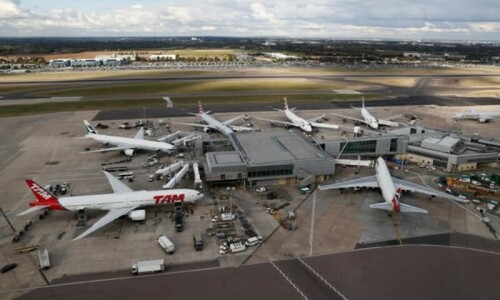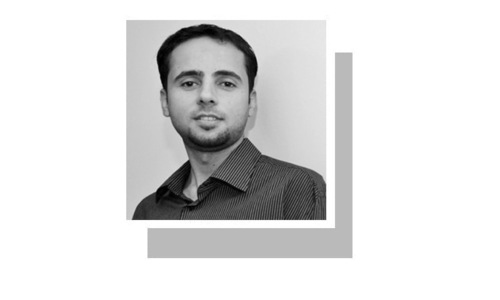Indian Prime Minister Narendra Modi will on Sunday hold his first public event in occupied Jammu and Kashmir since New Delhi imposed a sweeping security clampdown there more than two years ago.
Narendra Modi's Hindu nationalist government has sought to quell a long-running insurgency in Indian-occupied Kashmir and buttress its hold over the Muslim-majority region.
New Delhi nullified the area's limited autonomy in 2019, when authorities arrested thousands and imposed the world's longest internet shutdown, seeking to forestall local opposition to the move.
It is the most militarised part of India, with more than half a million soldiers and paramilitaries deployed across the region.
High security is being put in place for Modi's visit, but he can nonetheless expect a rousing welcome in Palli, with tens of thousands expected to welcome him at an event marshalled by his governing Bharatiya Janata Party (BJP).
The village is in Jammu, the Hindu-majority southern part of the territory, which celebrated New Delhi's introduction of direct rule as a bulwark against Kashmir's freedom struggle.
Modi will preside over a ceremony to mark Panchayati Raj — a day that commemorates grassroots democracy, although occupied Kashmir has been without an elected regional government since 2018, when the BJP left its ruling coalition and the New Delhi-appointed governor stepped in.
Its last chief minister was detained during the clampdown and only released more than a year later.
Sunday's event will see Modi lead the region “into a new era of development”, Lieutenant Governor Manoj Sinha told reporters.
'Fearful atmosphere'
Modi's government says its decision to end the occupied territory's limited autonomy was aimed at fostering a lasting peace and bringing investment into the troubled region, where tens of thousands of people have been killed over the years.
The result has been a rigid security framework that has rendered public protest virtually impossible and that critics say has put a stranglehold on civic life.
Around 2,300 people, mostly politicians and activists who have campaigned against Indian rule, have been arrested under vaguely worded legislation that allows authorities to designate anyone as a terrorist and puts the burden of innocence on the accused.
International human rights groups have condemned the measures.
Foreign journalists are barred from visiting and local reporters are often summoned by counterinsurgency police and questioned over their work, with three arrested in recent months under preventative detention laws.
“Reporting from Kashmir is now like walking and living on the razor's edge all the time,” a journalist working for an Indian newspaper told AFP, declining to be identified for fear of government reprisals.
“It's a very fearful atmosphere.”
Read: India batters press freedom and journalists in occupied Kashmir
Police say that violence has declined since the 2019 overhaul of occupied Kashmir's status.
But almost 1,000 people have been killed in that time — among them soldiers, freedom fighters and civilians.
Most of the violence has taken place in the mostly Muslim Kashmir valley, which according to reports is not on Modi's weekend itinerary.
Sunday's event will be his first formal public appearance in the region since the crackdown, although he has made informal visits to celebrate Hindu religious festivals with troops stationed along the Line of Control with Pakistan.
The 2019 changes also opened land ownership, jobs and local university places in occupied Kashmir to all Indians — privileges which had been earlier reserved for the territory's permanent residents.
Commentators allege the move was aimed at boosting a Hindu constituency in the contested region, likening it to “settler colonialism”.
Modi's visit was “pandering” to a population already inclined to support his agenda in the territory, historian and political commentator Siddiq Wahid told AFP.
But, he added, “it will be hard to achieve that and deflect attention from the overarching territorial dispute”.
















































